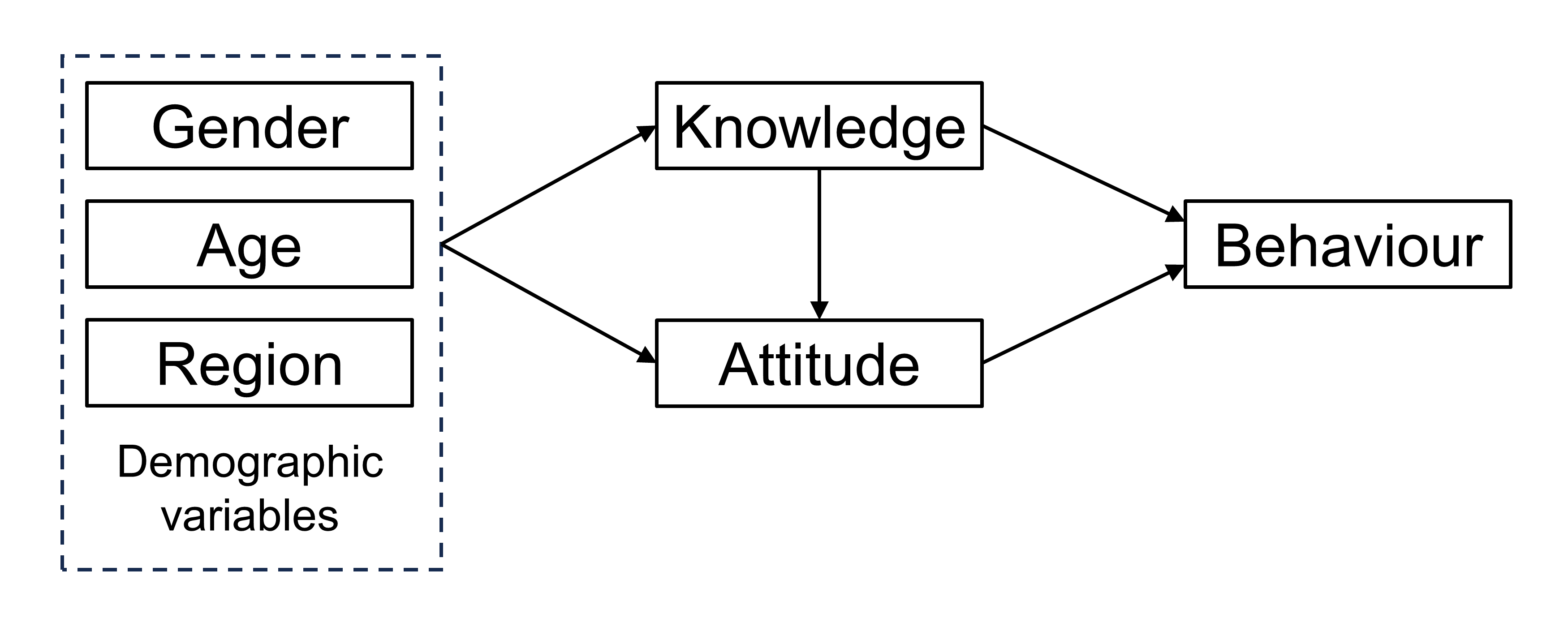The Geoprivacy Knowledge-Attitude-Behaviour Triad
Status: Published
Keywords: location privacy, privacy concerns, knowledge, attitude, behaviour, China
Background: Location privacy concern is unique as it often involves location-based services and geosocial media. China has over 70% of Internet penetration rate and a massive user base of social media. However, the topic of privacy attitude among Chinese individuals remains understudied.
Methods: We conducted an online survey to investigate location privacy concerns among individuals in China. A total of 1,000 responses were gathered, and following data cleaning, 491 samples were used in the subsequent data analysis.

Findings: Our findings suggest a positive relation among privacy knowledge, attitude, and behaviour, which is consistent with related literature. Declarative knowledge (e.g., privacy rights), on the other hand, had a negative relation with privacy concerns, which has not been previously discussed. In terms of demographic moderators, females were found to had less privacy knowledge but more privacy protection behaviours, while the impact of age on privacy concerns was inconclusive. A notable discovery was the regional difference of privacy concerns within China, suggesting the potential geopolitical influence on individuals’ mindsets.
Significance: Combined with the uncovering of behavioural change in response to involuntary location disclosure, results of this article challenge the conventional notion that Chinese individuals are indifferent to their online privacy and are thought-provoking to regulators within and outside the socialist country.
Reference: Zhang, H., & McKenzie, G. (in press). Geoprivacy knowledge, attitudes, and behaviors in contemporary China. Geographical Review.